You know that feeling when your hormones are completely out of whack? One day you’re energized and glowing, the next you’re crying over a coffee commercial while battling sugar cravings that could power a small city. Trust me, I’ve been there – and honestly, food became my secret weapon in this hormonal battlefield.
After years of trial and error (and way too many midnight Google searches), I discovered that what we eat directly impacts our hormone production and balance. Who knew that your ovaries actually care about your grocery shopping choices?
Why Your Hormones Are Acting Like Drama Queens
Before we jump into the good stuff, let’s talk about why women’s hormones are basically the divas of the endocrine system. Our bodies juggle estrogen, progesterone, testosterone, cortisol, insulin, and thyroid hormones – and they all need to play nice together.
Ever wonder why some days you feel like Wonder Woman and others like you’re dragging yourself through quicksand? It’s usually because one or more of these hormonal players decided to go rogue.
The good news? Food can help bring these drama queens back in line. And I’m not talking about bland, boring “health food” – some of these hormone-balancing foods are actually delicious.
The Power Players: Essential Nutrients for Hormone Health
Healthy Fats – Your Hormone’s Best Friends
Here’s something that blew my mind when I first learned it: hormones are literally made from cholesterol and fat. So when we go on those crazy low-fat diets, we’re basically starving our hormone production. Not exactly the smartest move, right?
The best hormone-supporting fats include: • Avocados (yes, your avocado toast obsession is justified!) • Wild-caught salmon and sardines • Nuts and seeds, especially walnuts and flaxseeds • Extra virgin olive oil • Coconut oil
I started adding a tablespoon of ground flaxseed to my morning smoothie, and within a few weeks, my PMS symptoms were noticeably less dramatic. The lignans in flaxseeds help balance estrogen levels – it’s like having a tiny hormone therapist in seed form.
Fiber – The Unsung Hero of Hormone Balance
Okay, fiber isn’t exactly the sexiest topic, but hear me out. Fiber helps eliminate excess hormones from your body, particularly estrogen. Without enough fiber, those hormones just keep recirculating, causing all sorts of chaos.
Think of fiber as your body’s cleanup crew. The recommended daily intake is about 25-35 grams, but most of us are getting way less than that.
Top fiber sources for hormone balance: • Leafy greens (kale, spinach, arugula) • Cruciferous vegetables (broccoli, cauliflower, Brussels sprouts) • Beans and legumes • Berries and apples with skin • Chia seeds and psyllium husk
The Hormone-Balancing All-Stars
Cruciferous Vegetables – The Estrogen Detox Squad
These veggies might not be the most glamorous, but they’re absolute powerhouses for hormone detoxification. Brussels sprouts, broccoli, cauliflower, and cabbage contain compounds called indole-3-carbinol and DIM, which help your liver process and eliminate excess estrogen.
I’ll be honest – I used to hate Brussels sprouts until I learned to roast them with a bit of balsamic glaze. Game changer! Now I actually crave them, which is probably the weirdest sentence I’ve ever written 🙂
Wild-Caught Fatty Fish – Omega-3 Magic
Salmon, sardines, mackerel, and anchovies are loaded with omega-3 fatty acids, which reduce inflammation and support healthy hormone production. Plus, they’re rich in vitamin D, which acts more like a hormone than a vitamin in your body.
FYI, I try to eat fatty fish at least twice a week. If you’re not a fish fan, a high-quality omega-3 supplement can work, but food sources are always better when possible.
Antioxidant-Rich Berries – Nature’s Little Gems
Berries are basically antioxidant bombs that protect your hormone-producing organs from oxidative stress. They’re also relatively low in sugar compared to other fruits, so they won’t spike your insulin levels.
My go-to hormone-supporting berries: • Blueberries – packed with anthocyanins • Strawberries – high in vitamin C and folate • Raspberries – loaded with fiber and antioxidants • Blackberries – contain natural compounds that support liver detox
I keep frozen berries on hand for smoothies when fresh ones aren’t available. Pro tip: frozen berries are often more nutritionally dense than fresh ones that have traveled long distances.
Foods That Support Specific Hormone Functions
For Balanced Blood Sugar and Insulin
Stable blood sugar is crucial for hormone balance because insulin spikes can throw off your other hormones. When your blood sugar is on a roller coaster, your hormones are along for the wild ride.
Blood sugar-balancing foods: • Cinnamon (adds it to everything – coffee, oatmeal, smoothies) • Apple cider vinegar • Chromium-rich foods like broccoli and grape juice • Protein-rich foods that slow glucose absorption • Complex carbohydrates like quinoa and sweet potatoes
For Thyroid Health
Your thyroid is like the metabolic control center of your body. When it’s sluggish, everything feels sluggish – your energy, mood, and even your other hormones.
Thyroid-supporting nutrients: • Iodine from seaweed, eggs, and dairy • Selenium from Brazil nuts (just 2-3 nuts daily!) • Zinc from pumpkin seeds, beef, and shellfish • Tyrosine from almonds, avocados, and bananas
I keep a small container of Brazil nuts in my desk drawer. Two nuts give you your entire daily selenium requirement – how’s that for efficiency?
For Stress Hormone Balance
Chronic stress wreaks havoc on hormones, particularly cortisol. When cortisol is constantly elevated, it can suppress other hormone production and mess with everything from your sleep to your sex drive.
Adaptogenic foods and herbs help manage stress: • Ashwagandha (I add powder to my evening tea) • Holy basil • Rhodiola • Dark chocolate (yes, really! The darker, the better) • Green tea
The Foods to Limit or Avoid
Let’s be real – some foods are hormone disruptors in disguise. I’m not saying you can never have them, but moderation is key when it comes to these troublemakers:
Processed Foods and Refined Sugars
These create blood sugar spikes and inflammation, which throw your hormones into chaos. Plus, they often contain preservatives and additives that can mimic hormones in your body.
Excessive Caffeine
I love my coffee as much as the next person, but too much caffeine can elevate cortisol levels. I’ve found that limiting myself to one cup in the morning and switching to herbal tea later works best for my hormone balance.
Conventional Dairy
This one’s controversial, but many women find that reducing dairy improves their hormonal symptoms. Conventional dairy often contains added hormones that can interfere with your natural hormone production.
Alcohol
Sorry to be the bearer of bad news, but alcohol can disrupt sleep and increase estrogen levels while depleting important B vitamins. I’m not saying you need to become a teetotaler, but being mindful of your intake can make a difference.
Putting It All Together: Sample Hormone-Balancing Day
Want to see what hormone-friendly eating looks like in real life? Here’s what I typically eat on a day when I’m prioritizing hormonal balance:
Breakfast: Smoothie with spinach, berries, ground flaxseed, protein powder, and almond butter Snack: Apple slices with almond butter and a sprinkle of cinnamon Lunch: Wild salmon salad with mixed greens, avocado, and pumpkin seeds Snack: A small handful of Brazil nuts and some dark chocolate Dinner: Roasted chicken with steamed broccoli and quinoa
The key is consistency over perfection. You don’t need to eat perfectly every single day, but making these foods the foundation of your diet can make a real difference.
The Bottom Line on Food and Hormone Balance
Here’s what I’ve learned after years of experimenting with hormone-balancing foods: small, consistent changes add up to big results. You don’t need to overhaul your entire diet overnight – that’s a recipe for burnout.
Start with adding one or two hormone-supporting foods to your daily routine. Maybe it’s ground flaxseed in your smoothie or an extra serving of vegetables with dinner. Your hormones will thank you for the gradual, sustainable approach.
Remember, food is just one piece of the hormone puzzle. Sleep, stress management, and regular movement all play crucial roles too. But since we eat multiple times a day, optimizing our food choices gives us frequent opportunities to support our hormonal health.
IMO, taking control of your hormone balance through food is one of the most empowering things you can do for your health. Your future self – the one with stable energy, clear skin, and manageable PMS – will definitely thank you for it!
Disclaimer: The information provided on this blog is for educational and informational purposes only. It is not intended as medical advice and should not replace consultation with a qualified healthcare professional. If you have any concerns or questions about your health, please seek advice from your doctor or a licensed medical provider.

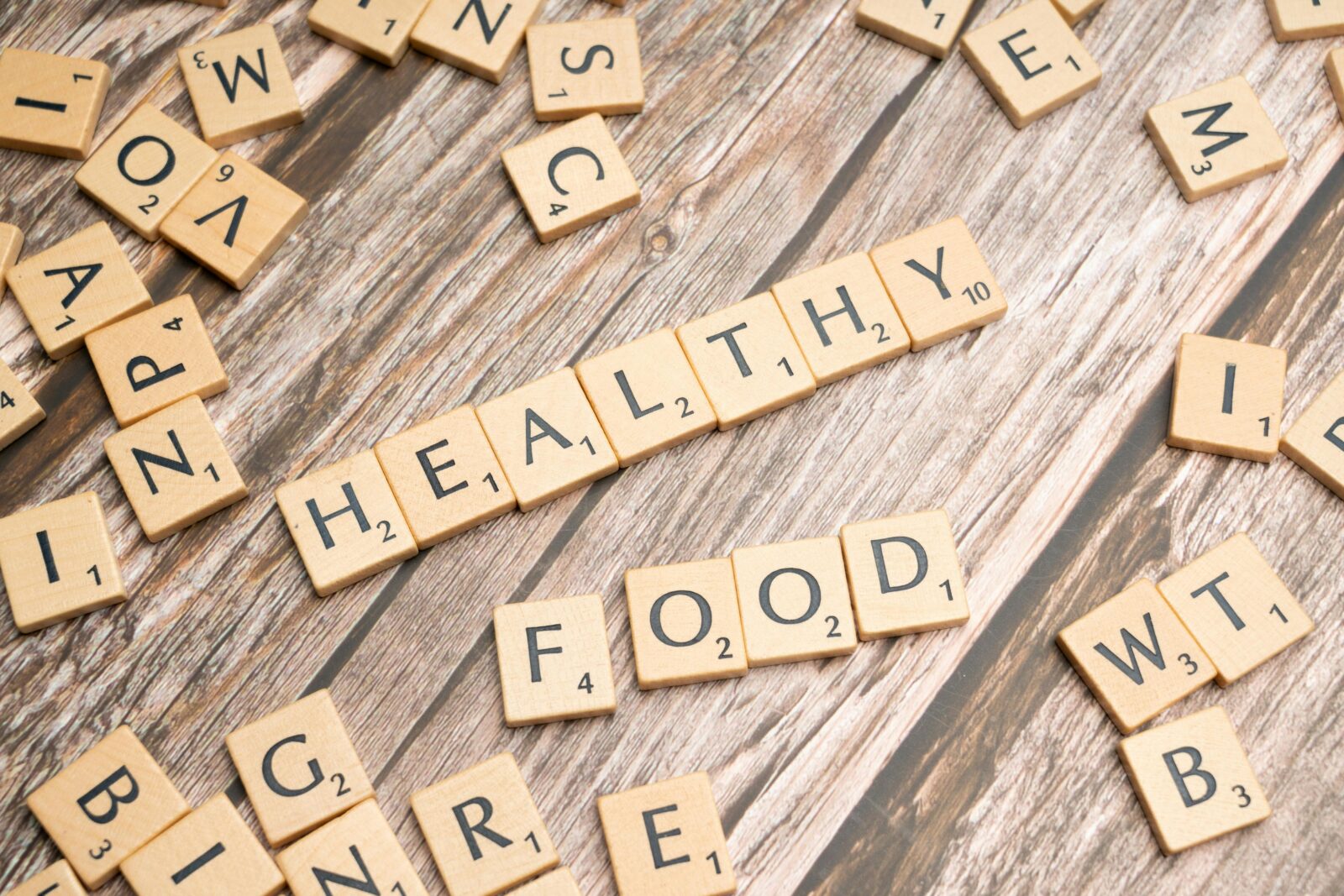

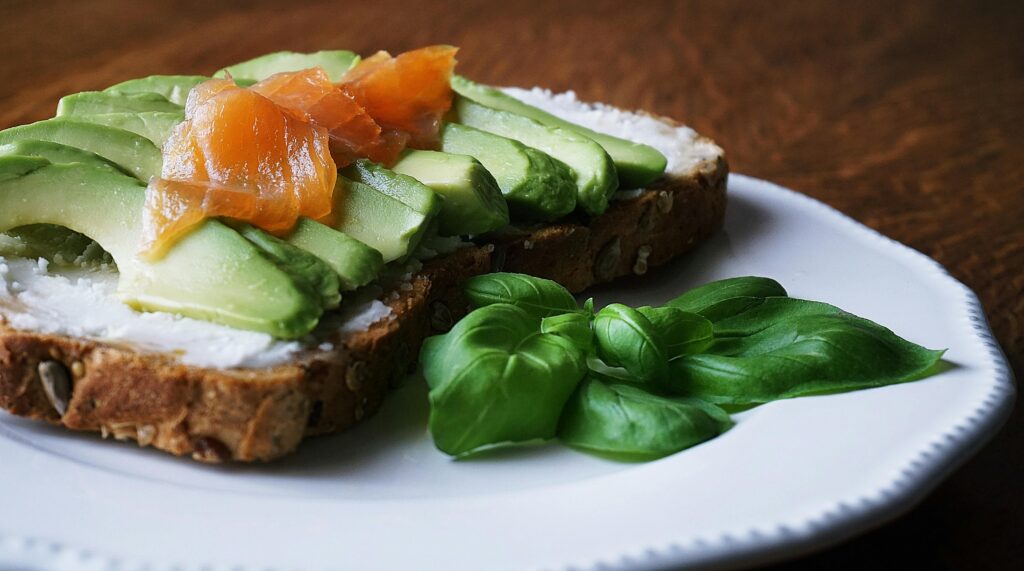
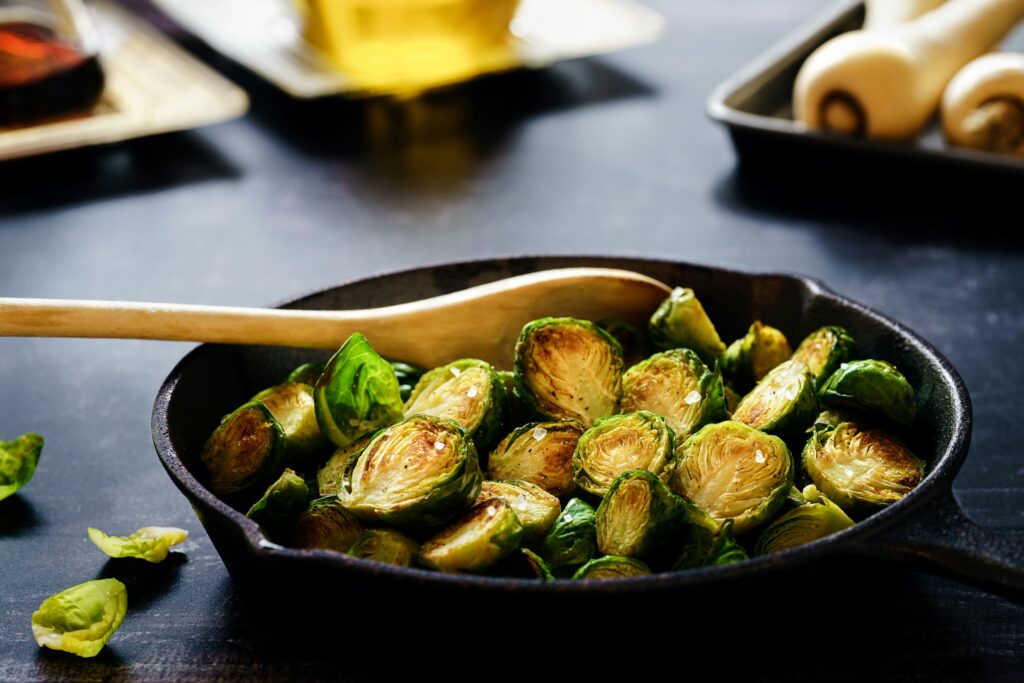
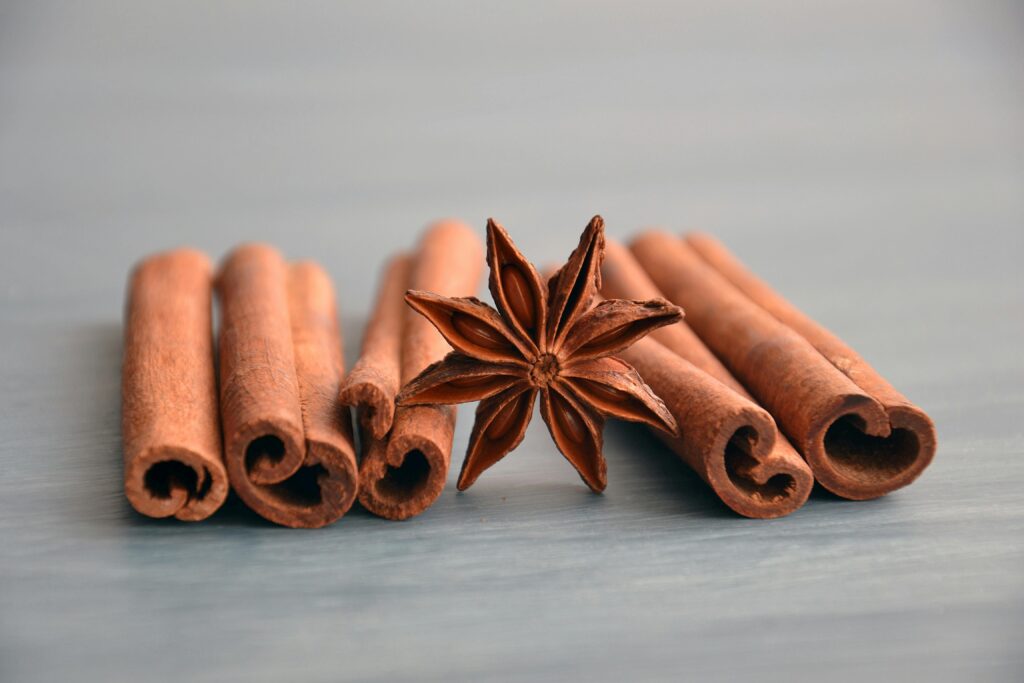
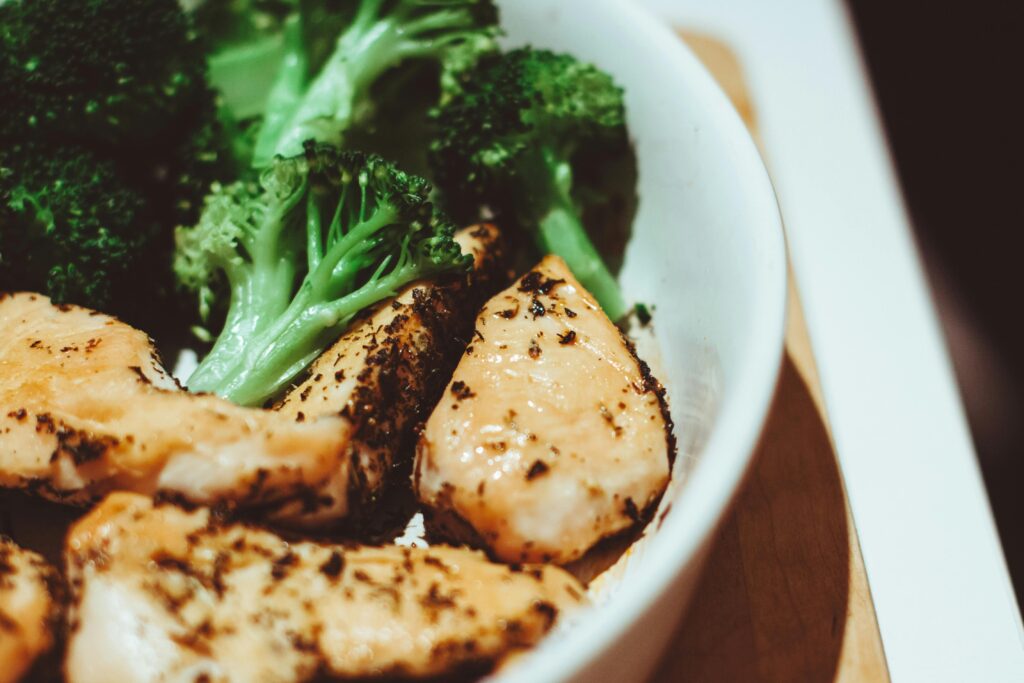




Leave a Reply